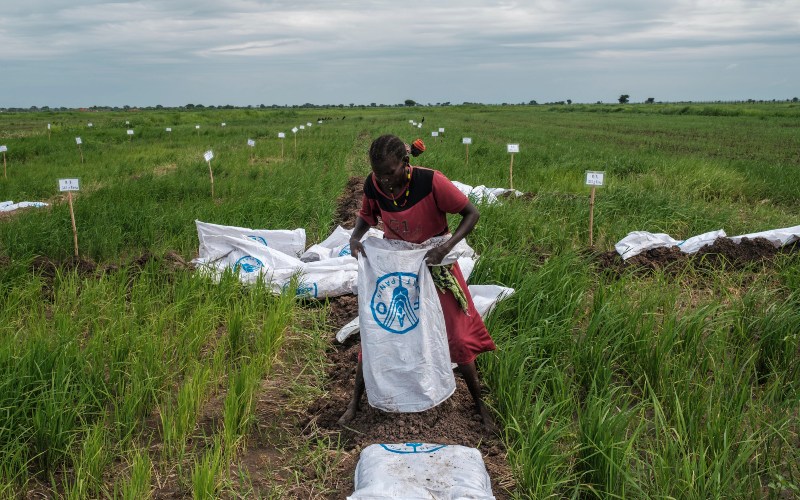Report reveals 40 per cent of all bribes in Kenya are paid to police officers

The aggregate bribery index placed police at the top with a score of 84, far above land services (45) and motor vehicle licensing (43.7).
Police, land services and civil registration departments have been ranked as the most bribery-prone public service sectors in Kenya, according to the latest Kenya Bribery Index 2025 by Transparency International (TI) Kenya.
The 2025 survey, which involved 1,033 respondents from 15 counties, captured perceptions and experiences across police, judiciary, education, land services, civil registration, health, tax, and motor vehicle licensing services.
More To Read
- Five traffic cops nabbed in EACC sting operation over bribery on Kisumu–Busia highway
- NTSA under fire for negligence, lax enforcement after deadly road crashes
- Why Ruto’s anti-corruption stance is a 'political gimmick' to win public support - Rights defender Peter Kiama
- Speaker Kingi dismisses Ruto's bribery claims, says no formal complaints filed against senators
- Section of Senators demand President Ruto be summoned to give evidence over alleged bribery in Parliament
- Devolution at risk as projects remain incomplete across counties
The aggregate bribery index placed police at the top with a score of 84, far above land services (45) and motor vehicle licensing (43.7).
The police were ranked worst on the likelihood of encountering bribery, scoring 72.2 per cent. According to the report, out of every 10 Kenyans who interacted with the police in the study period, seven found themselves in a bribery situation. Land services and civil registration offices followed, with scores slightly above 60 per cent.
Police officers received nearly 40 per cent of all bribes reported in the survey, with the sector also topping the prevalence of bribery indicator at 51 per cent.
Motor vehicle licensing was the second-worst ranked on this measure, at 48 per cent, implying that for every two citizens who found themselves in a bribery situation within the sector, one actually paid a bribe to access services.
According to the report, one in every four Kenyans has faced a bribery situation while seeking public services. Of these, 23 per cent said they were asked or expected to pay a bribe, while two per cent admitted to offering a bribe without solicitation.
“The survey found that 25 per cent of respondents encountered a bribery situation, with the police, land services, and civil registration emerging as the most bribery-prone sectors,” reads the report.
The report reveals that men accounted for a larger share of reported bribes at 64 per cent, compared to 36 per cent among women.
“It could be likely that due to gender norms and relations, men are more active economically and therefore likely to interact more with public institutions, eliciting more bribery opportunities,” the report noted.
The judiciary, while showing improvements in likelihood scores, registered the highest average bribe at Sh18,800, marking a 33 per cent increase compared to 2017.
“The implication of this is that each Kenyan seeking services in the judiciary and encountering bribery would hypothetically have to pay an average bribe of Sh18,800,” the report states.
Land services recorded an average bribe of Sh12,610, attributed to frequent human interactions in land transactions. Transparency International observed that digital interventions like Ardhi Sasa have only been rolled out in Nairobi and Murang’a counties, leaving most parts of the country still vulnerable.
While reporting of bribery cases improved from six per cent in 2017 to 17 per cent in 2025, the majority still avoid reporting due to low confidence in enforcement agencies. The report notes that 47 per cent of those who did not report said they believed no action would be taken even if they did.
On institutional performance, Huduma Centres were ranked as the least bribery-prone, with only a nine per cent likelihood of encountering bribery.
The report further raised concerns over rising corruption within essential services.
“One of the most deleterious forms of corruption is bribery in the provision of public services,” Transparency International Kenya said, warning that bribery demands introduce financial barriers that exclude many citizens from accessing vital services.
The report has recommended urgent reforms in policing, whistleblower protection, digitisation of services and citizen empowerment to curb bribery and restore public trust.
“Bribery demands introduce financial barriers that lock out many Kenyans from essential services,” Transparency International Kenya said.
The report also calls for targeted interventions by the Executive, Parliament, Judiciary and independent oversight bodies to address bribery vulnerabilities and corruption in service delivery.
Top Stories Today












































